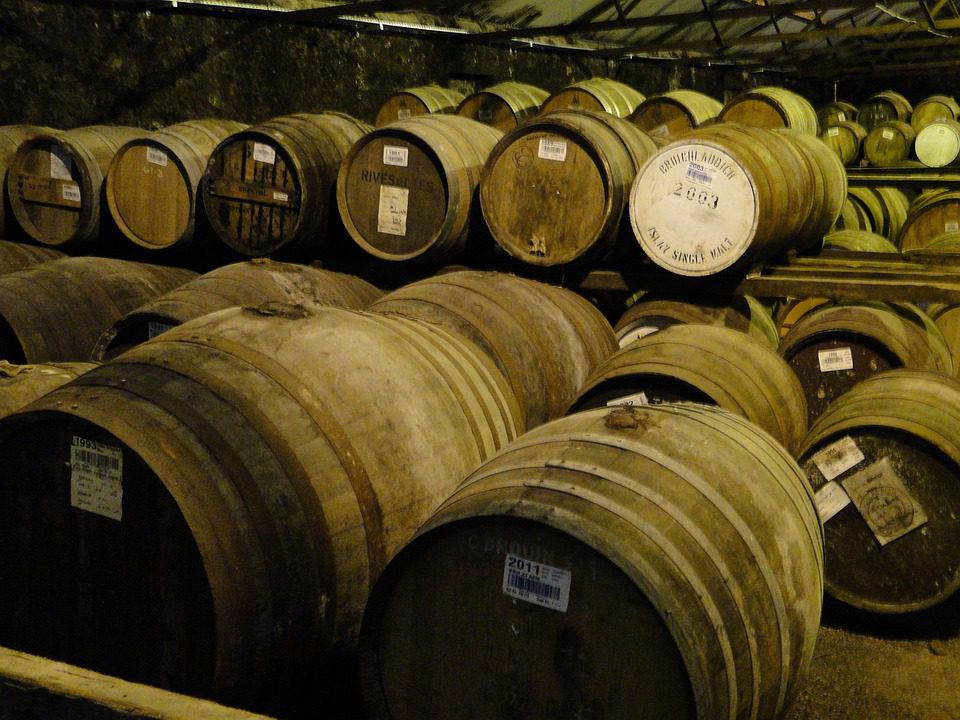
Whisky.
So many words have been written down and spoken aloud on Scotland's national drink that you could fill many hundreds of veritable tomes with them and in fact, thousands of books have indeed been written on the subject.
In these more modern times, a quick Google search reveals pages and pages of blogs, forums, social media posts - and groups -dedicated to the subject of our national drink.
Indeed, there's so much information out there that you would think that anyone wanting a good dram would be inundated with the pooled wisdom of other drinkers, producers and writers, and yet, people still perpetuate many terrible lies and half-truths about whisky.
So, we thought we'd take a look at the biggest misconceptions about whisky in a concise bid to dispel as many as we could - once and for all - and allow you, dear reader, to do what's really important, get back to enjoying a dram or two.
First off, let's get the worst one out of the way. Whisky is not the sole preserve of old men with grey beards and tweed jackets, smoking cigars, in old leather arm chairs, in gentlemen's clubs.
Whisky is for everyone.
Be you old or young (well not younger than your country's age limit for drinking of course), any gender, any sexuality, any race, any religion, rich or poor - whisky is for you.
Which brings us neatly onto...
If somebody tells you whisky is for men not women, carefully explain to them that they are of course wrong, and then quickly point out the vast amount of wonderful women who make this industry what it is.
Distilling, blending, sales, ambassadorial roles, blogging - at every stage you won't have to look far to find successful women who are driving the world of whisky forward.
Another fallacy is that there's a set way to drink the uisge beatha. Like the whisky itself, every person drinking it will be different, they will have different tastes and will enjoy the sensory adventure that is a dram in different ways.


Drinking whisky on the rocks may look cool but understanding how it affects the dram is important. Picture: wikimedia
To be clear, don't listen to anyone else telling you how to drink YOUR whisky, you've paid for it, it's yours. Enjoy it how you like it.
Just understand that:
• Adding ice will cool the drink and dampen the flavour, so if that's the intention then, by all means, have your whisky on the rocks.
• Adding a small drop of water to certain whiskies will enhance the flavour, but ALWAYS have a taste first, some whiskies are so light that adding water will simply drown them, smothering their flavour.
• Adding coke/lemonade/orange juice/soda/tonic is another personal choice but try to remember that most single malts have been cared for lovingly for ten years or more before they reach you, drowning them in a soft drink might just be a little bit of an injustice. Better to use a cheaper blend should you want to mix it, but again it's your choice.
Again every person is different and so is every palate, where one person might be painting with reds and yellows, another might be painting with greens and blues. Every person will have eaten different foods, experienced different flavours so when they try a whisky, they might interpret the flavours in differing ways.
So don't worry if the flavours you taste aren't what's in the notes, it's perfectly natural, just use them as a guide.
One of the oldest myths in the whisky world is the statement that older whiskies are always better than younger ones. While that may be true of some - heck, we won't argue that a 40-year-old isn't going to be better than the ten-year-old from the same distillery - it isn't always the case.


Some younger whiskies actually benefit from spending less time in a cask and some older whiskies actually suffer from too much maturation. Picture: Flickr
Thankfully, the industry is wising up to this and there are some great younger whiskies being released.
Another fallacy. Much like everything else dictated by the rules of economics, how rare a product is dictates its price but because of the correlation between age and rarity in the industry, most just assume whisky of a higher age must be more expensive.
This isn't always the case and sometimes you will come across a younger whisky (be they limited editions or from mothballed distilleries) that is more expensive than an older similar whisky.
This is surely the strangest one on the list, I mean one only has to nose a Laphroaig and say, an Auchentoshan Three Wood, to be able to tell they are as different as well, as chalk and cheese.
There is a whole range of flavours from smooth and lightly fruity to nutty and woody, salty and briney through to medicinal and peaty.
Indeed, one of the major joys of drinking Scotch, is the fun of discovering each new flavour and seeing how each factor involved in its production affects the whisky.
From the region it was produced in, to the use of wood or peat and the variance in age; the range of flavour profiles from this complex drink is truly astounding.
Many are now of the belief that single malts are the best whisky you can get (and yes, we can be included in this list).
While it can be argued that single malts are some of the best around, there are many amazing single grains, blended malts and premium blends that deserve to be up there battling for our consideration.
Offering a complexity that single malts can often struggle to match, it is often overlooked just how good blends can be.
As Kirsteen Campbell, master blender at Cutty Sark, said in a recent interview with the Huffington Post: "Blends really sing to me as there are so many layers of flavour, like an artist works with colours to create images that are visually stimulating to the eye, I work with flavours in a way which are appealing to the palate. Single malts often get all the headlines and blended Scotch whisky is often underated - 90 per cent of all Scotch whisky produced is actually blend!"


